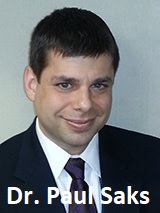Understanding The Benefits of Psychotherapy

Psychotherapy has often not gotten the respect it deserves, but this method of healing mental health disorders proved to be very effective owing to the way it takes in the full scope of the human experience and encourages the authentic change in the way client relates to the world and people around him.
Psychotherapists work not only on their patients’symptoms, but on their characters, understanding that character coalesces from both our genetic temperaments and the experiences of our formative years. Psychotherapists understand that when those formative experiences are negative (involving things like abuse and deprivation), our internal environments and our predictions for the future become similarly negative and flawed, leading to the development of mental illness.
Psychotherapy effectively analyzes the mental “play”that the patient has (involving people as “characters”, imagined scenarios, plots, etc.) finding where it is problematic and why, and encouraging the patient to mourn the original pain that caused these problems. Once this pain has been mourned, the patient can dismantle the problematic play and write a new, more positive one in its place—something which medication alone cannot ever accomplish for the patient.
Too many mental health professionals treat mental illness as simply a medical problem, not taking into account that it is, like all human suffering, also a human problem. This is an inherently narrow and incomplete way of looking at psychiatric symptoms; no human suffering can be properly understood without also examining the human condition and the human experience, including everything from relationship struggles, to parental abuse, to questioning the meaning of life, to toxic coping mechanisms, and much more.
Throughout much of human history, psychological issues were treated in a more holistic way, usually by shamans and other forms of spiritual healers, a role which psychiatry initially tried to fill before succumbing to the view that all mental illnesses are simply brain disorders and nothing more.
This illusion has, of course, been a profitable one, as it implies the only treatment for mental illness is the long-term administration of psychoactive drugs—an idea now widely embraced both by the medical profession and society at large. Few people nowadays pause to consider the fact that thinking something as complex and multifaceted as the human condition can be waved away with a pill is so simplistic as to be insulting.
This is not to say that psychotherapy has never had its problems; it’s had its quacks, hacks, wildly inaccurate theories, and incompetent practitioners—but so has every field of medicine, yet most of us do not claim that going to the doctor, for example, is entirely useless.
The Principles of Psychotherapy
Many of those who practice psychotherapy believe that early childhood trauma affects the character in a number of ways, depending on the degree and nature of the trauma. This is generally broken down into three major categories:
1. Moderate damage/abuse mixed with a level of adequate care. This type of confusing “mixed messages”formative abuse usually results in obsessive, phobic, compulsive, or dissociative traits.
2. Severe abuse and inadequate care. This terrifyingly consistent and relentless type of abuse tends to result in schizoid and paranoid characters, sadistic and masochistic behaviours, narcissistic and egoistic personalities, borderline personality disorder, affective issues (problems regulating mood and emotions), anorexia, germ phobias, psychopathy, and psychotic depression.
3. Damage to the “authentic being”. The origins of this type of damage—the fragmentation of the intactness of the self and persona—are less clear, but are theorized to arise from early maternal damage, a possibly genetic predisposition, and other factors in the environment of the individual. Regardless of exact origin, this damage produces severe mental illness, such as hebephrenia, catatonic schizophrenia, paranoid schizophrenia, schizoaffective schizophrenia, manic depression, and paranoid disorders. It is interesting to note that, as hebephrenia and catatonia do not fit the current dominant medical model, they are seldom mentioned anymore, even though they certainly do still occur.
The Critique of Psychotherapy
Criticism of psychotherapy can also be broken down into three major categories: It focuses too much on the cliché of having a “bad mother”, it’s too “one size fits all”, and that it is not scientific and “evidence based”enough. None of these criticisms are truly accurate, however, for the following reasons:
- Therapy is not about “blaming”parents. Generally therapists understand that a) parents are not perfect, and may have meant well and b) parents may themselves have been sufferers of abuse and mental illness. Pointing out how someone’s behaviour impacted another person is not necessarily blame, it’s simply a step toward mourning the pain that was caused and moving on.
- Psychotherapy cannot be said to be more “one size fits all” than drug therapy, i.e. prescribing one or two drugs to all people with the same condition(s). It is, as should be obvious, much less one size fits all than the drug model of handling mental illness, as it takes the person into account as a whole being, taking stock of their emotions, experiences, and unique needs. Therapy is a multifaceted approach, and it may also utilize psychoactive drugs (which are often necessary when it comes to certain mental illnesses, such as schizophrenia) as part of its total approach.
- As to the lack of “scientific evidence”, it’s only logical that as science has no respect whatever for subjective accounts of an experience (only readily measurable data that can be recreated endlessly under controlled conditions), there is always going to be a lack of scientific evidence and a wealth of accounts from both patients and psychotherapists that therapy has profound positive effects. One must also keep in mind that the evidence for the efficacy of most psychoactive drugs is just as sparse, with the “evidence”that antidepressants work suggesting that they are effective just 10 percent of the time. Most biochemical theories of mental illness are still just that: theories.
In summation, if we adhere solely to the drug therapy model simply because it seems familiar and more “legitimate”due to its likeness to the standard treatment procedure for physical illnesses, we are drastically oversimplifying the rich complexity of the human experience and downplaying the multifaceted needs and sufferings of those with mental illness. We are treating them as a disorder more than we are treating them as people, and that is ultimately dehumanizing.
Image: https://www.flickr.com/photos/somemixedstuff/2403249501



















